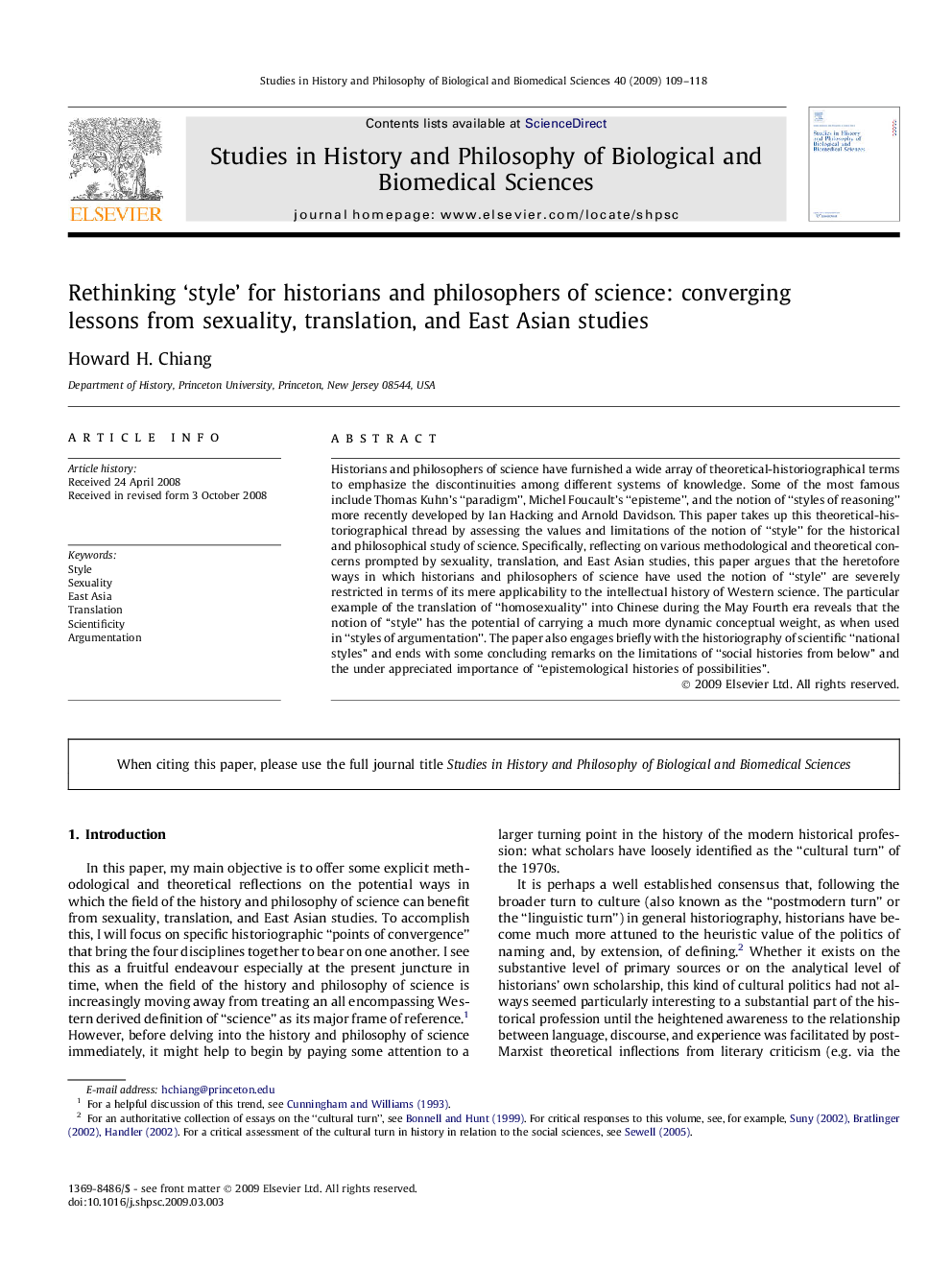| کد مقاله | کد نشریه | سال انتشار | مقاله انگلیسی | نسخه تمام متن |
|---|---|---|---|---|
| 1161966 | 1490542 | 2009 | 10 صفحه PDF | دانلود رایگان |

Historians and philosophers of science have furnished a wide array of theoretical-historiographical terms to emphasize the discontinuities among different systems of knowledge. Some of the most famous include Thomas Kuhn’s “paradigm”, Michel Foucault’s “episteme”, and the notion of “styles of reasoning” more recently developed by Ian Hacking and Arnold Davidson. This paper takes up this theoretical-historiographical thread by assessing the values and limitations of the notion of “style” for the historical and philosophical study of science. Specifically, reflecting on various methodological and theoretical concerns prompted by sexuality, translation, and East Asian studies, this paper argues that the heretofore ways in which historians and philosophers of science have used the notion of “style” are severely restricted in terms of its mere applicability to the intellectual history of Western science. The particular example of the translation of “homosexuality” into Chinese during the May Fourth era reveals that the notion of “style” has the potential of carrying a much more dynamic conceptual weight, as when used in “styles of argumentation”. The paper also engages briefly with the historiography of scientific “national styles” and ends with some concluding remarks on the limitations of “social histories from below” and the under appreciated importance of “epistemological histories of possibilities”.
Journal: Studies in History and Philosophy of Science Part C: Studies in History and Philosophy of Biological and Biomedical Sciences - Volume 40, Issue 2, June 2009, Pages 109–118